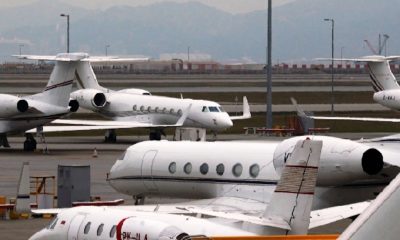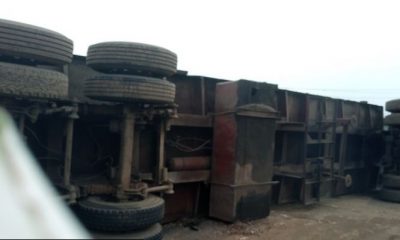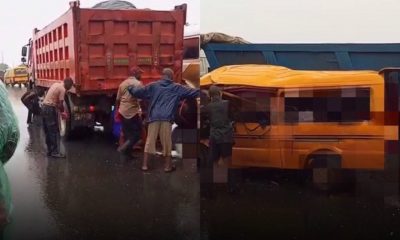By Odunewu Segun
When the Senate in the last quarter of 2016 said multiple air crashes are imminent in the aviation sector, key stakeholders in the sector took the declaration with a pinch of salt. To them, the turbulent 2005/2006 year with worst cases of plane crashes is already behind us.
But two mishaps in two days seems too many, and the Senate may be right in their assessment of the aviation sector after all.
First it was an Air Peace 737 aircraft with about 105 passengers aboard yesterday heading for Abuja that got its tyre burst while preparing for take-off at the Murtala Muhammed Airport, Lagos.
Thankfully no lives were lost.
Less than 24 hours later, a Medview Airline with about 100 passengers, also from Lagos to Abuja was suspended midair after a fault was observed on the plane.
A passenger on the flight said passengers suspected the plane, with flight number VL 2102, was faulty before takeoff, but they were assured by the pilot and the crew that all was well.
A few minutes after take-off, the plane had to return to the Lagos Airport due to the problem.
For some keen observers, with these two near catastrophic events, the Senate assessment of the aviation sector was blunt. But for others, including the regulators, it was a bad advertisement and a disservice to the domestic operators that are struggling to keep the flag flying in the most difficult economic conditions.
When contacted, the General Manager, Public Relations, Nigerian Civil Aviation Authority (NCAA), Sam Adurogboye, said he was yet to confirm if the incidents had been filed with the regulatory authority.
National Daily gathered that an airline that cannot meet financial obligations in buying fuel and paying salaries will obviously be incapacitated to carry out routine maintenance on its aircrafts. A C-check maintenance mandatory for commercial aircraft every 18 months costs between $300, 000 to $500,000 at an average Maintenance, Repair and Overhaul (MRO) facility overseas.
Because of the huge sum involved, made worse by foreign exchange spike, domestic airlines grounded some aircrafts. Some went for maintenance, but never returned as operators do not have funds to foot the bill.
To make matters worse, virtually all the domestic airlines are indebted in billions to banks and regulatory authorities. While they have no justifiable claim to fetch another loan from the bank, regulatory authorities like the Federal Airports Authority of Nigeria (FAAN) and Nigerian Airspace Management Agency (NAMA), among others, are going gung-ho to force some debts off already financially distressed airlines.
Recalled that Arik Airline was recently taken over by the Asset Management Corporation of Nigeria (AMCON) because of its huge debt that has nearly crippled its operation.
According to the Media Consultant to Arik Air, Simon Tumba, apart from the over N300bn owed to AMCON, the airline also owes about N50bn to Nigerian banks and another $78m to IATA.

 Football6 days ago
Football6 days ago
 Aviation7 days ago
Aviation7 days ago
 Aviation1 week ago
Aviation1 week ago
 Featured4 days ago
Featured4 days ago
 Comments and Issues6 days ago
Comments and Issues6 days ago
 Education5 days ago
Education5 days ago
 Business5 days ago
Business5 days ago
 Education7 days ago
Education7 days ago













